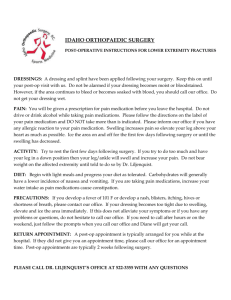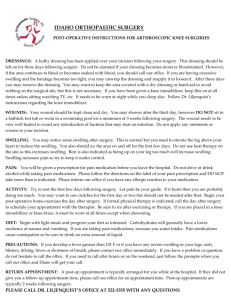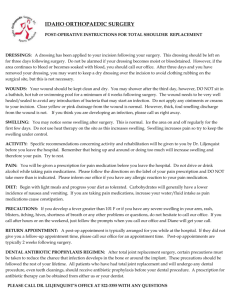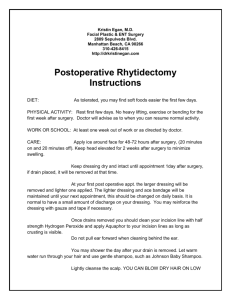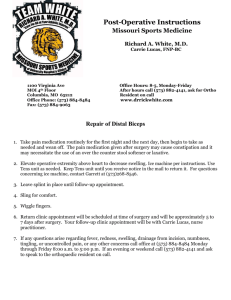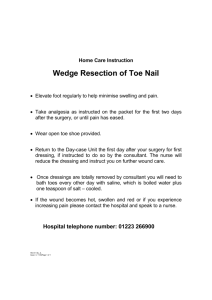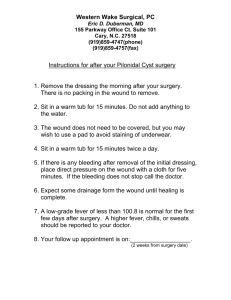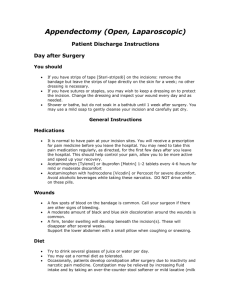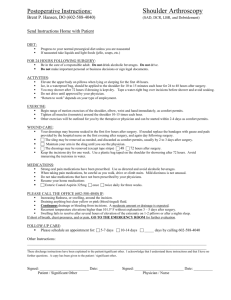Post-Operative Instructions - Arthroscopic Shoulder Surgery
advertisement
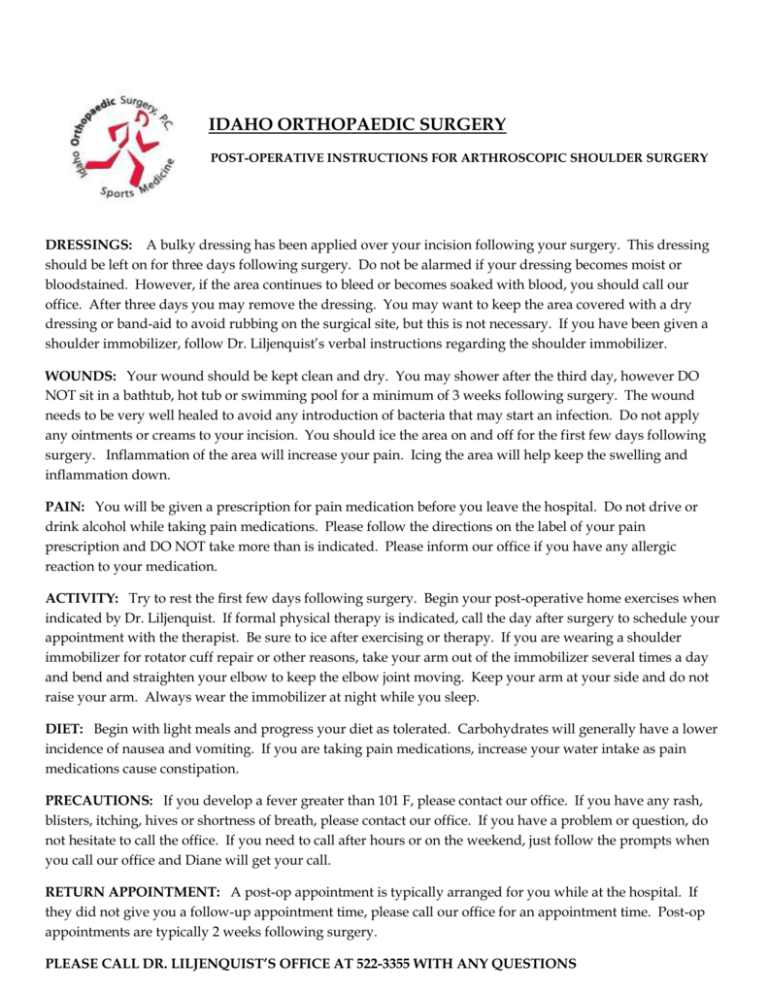
IDAHO ORTHOPAEDIC SURGERY POST-OPERATIVE INSTRUCTIONS FOR ARTHROSCOPIC SHOULDER SURGERY DRESSINGS: A bulky dressing has been applied over your incision following your surgery. This dressing should be left on for three days following surgery. Do not be alarmed if your dressing becomes moist or bloodstained. However, if the area continues to bleed or becomes soaked with blood, you should call our office. After three days you may remove the dressing. You may want to keep the area covered with a dry dressing or band-aid to avoid rubbing on the surgical site, but this is not necessary. If you have been given a shoulder immobilizer, follow Dr. Liljenquist’s verbal instructions regarding the shoulder immobilizer. WOUNDS: Your wound should be kept clean and dry. You may shower after the third day, however DO NOT sit in a bathtub, hot tub or swimming pool for a minimum of 3 weeks following surgery. The wound needs to be very well healed to avoid any introduction of bacteria that may start an infection. Do not apply any ointments or creams to your incision. You should ice the area on and off for the first few days following surgery. Inflammation of the area will increase your pain. Icing the area will help keep the swelling and inflammation down. PAIN: You will be given a prescription for pain medication before you leave the hospital. Do not drive or drink alcohol while taking pain medications. Please follow the directions on the label of your pain prescription and DO NOT take more than is indicated. Please inform our office if you have any allergic reaction to your medication. ACTIVITY: Try to rest the first few days following surgery. Begin your post-operative home exercises when indicated by Dr. Liljenquist. If formal physical therapy is indicated, call the day after surgery to schedule your appointment with the therapist. Be sure to ice after exercising or therapy. If you are wearing a shoulder immobilizer for rotator cuff repair or other reasons, take your arm out of the immobilizer several times a day and bend and straighten your elbow to keep the elbow joint moving. Keep your arm at your side and do not raise your arm. Always wear the immobilizer at night while you sleep. DIET: Begin with light meals and progress your diet as tolerated. Carbohydrates will generally have a lower incidence of nausea and vomiting. If you are taking pain medications, increase your water intake as pain medications cause constipation. PRECAUTIONS: If you develop a fever greater than 101 F, please contact our office. If you have any rash, blisters, itching, hives or shortness of breath, please contact our office. If you have a problem or question, do not hesitate to call the office. If you need to call after hours or on the weekend, just follow the prompts when you call our office and Diane will get your call. RETURN APPOINTMENT: A post-op appointment is typically arranged for you while at the hospital. If they did not give you a follow-up appointment time, please call our office for an appointment time. Post-op appointments are typically 2 weeks following surgery. PLEASE CALL DR. LILJENQUIST’S OFFICE AT 522-3355 WITH ANY QUESTIONS
